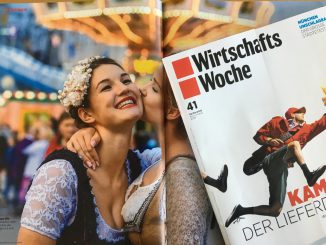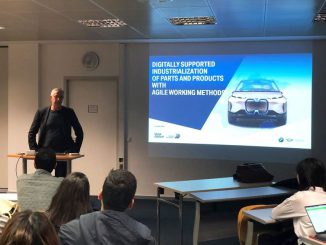
It is a proven fact that emotional customer retention correlates with purchasing behavior: Emotionally bound customers buy more and more often, are less prone to competitive offers and actively recommend the brand. This is why emotional customer retention has a measurable effect on a company’s economic success. “Events and emotions build bridges between people and messages, generate emotionality, create trust, […] and are activators and sellers.”[1]
This is the reason why event marketing will increase in significance in the future.[1] As early as in 2009, 84 percent of the companies included in the survey were convinced that events were an important component of brand communication.[2] In those times, the events were mainly sales or information events. But in recent years, influencing factors such as online trends, dialogue marketing and social media platforms have rapidly changed the understanding of event marketing – and consequently the customers’ behavior.[3]
Today’s customers have become more fastidious and demanding, expecting to be informed about latest news 24 / 7 / 365. Logically, companies are under obligation to keep up with the digital change to be able to make a stance in the competition for customer events and involvements.[1] Nevertheless, doubts about the necessity and efficiency of events persist.[1] Thus, emotion and motivation remain important aspects of live communication aimed at binding customers to a brand in the long run.
Event marketing by BMW & Co.
Event marketing in the automotive industry is one of the most used means of communication to establish direct customer contact. On the basis of an analysis of the event platforms of the brands BMW, Mercedes-Benz and Audi, the following can be observed: All three premium car manufacturers use the most diversified event platforms to be able to address a broad range of target groups.
All three of them are active in similar areas, such as for example motor and winter sports, culture, trade shows and/or lifestyle. In general, all three companies pursue the same goals, consisting in an increased brand awareness, improvement and stabilization of brand image and acquisition of new customers.
The selected companies are title sponsors of various event platforms, but each of them pursues its own agenda to achieve success. One of the main requirements for this success is that companies must realize synergies between the event partners and their own company and that goals and objectives of all stakeholders are compatible. This is the only way a company can attain a credible appearance before its target group and shape long-term cooperation between the company and the sponsored partner with consistency.
An overview of the premium car manufacturers shows that each company has focused on a specific sport that is compatible with the company’s goals. Hence, the brands BMW and Audi have made a good match by positioning themselves in winter sports whereas Mercedes is very well embedded in the fashion sector.
It is obvious that the BMW, Mercedes-Benz and Audi platforms are used as communication tools to address new target groups and to integrate existing ones. Audi, in particular, uses online media to acquire new customers, for example company-managed blogs and the format Audi MediaTV.
Similarly, Mercedes-Benz operates blogs and runs cooperatives with bloggers from the fashion sector to generate awareness for the brand. In addition, Audi and Mercedes-Benz offer a range of customer programs within the frame of their events by inviting existing customers and using these platforms as efficiently as possible for networking and customer retention.
Target groups specifically addressed
BMW also counts to a significant extent on online media and Internet communication, for example target group-specific websites. If these are supplemented by platforms such as blogs or mobile event apps, they stand a good chance of directly addressing, informing and interacting with target groups such as VIP or international key accounts even more efficiently. In addition, there is the option of using existing event platforms of the BMW Group even more strongly by making target groups participate in customized programs.
As an element of a marketing mix, event marketing holds an enormous future potential for companies. If mobile interaction, multi sensor approaches and social media are integrated in an event platform, it is justified to believe that event marketing will maintain a valuable position in companies’ marketing mix. Due to limited budgets, one should consider whether setting up a new platform for select customer groups is necessary or whether the concept of an integrated marketing should be pursued and existing platforms are used and extended to fit the needs of the target group.
[1] Flaschenträger, M. (2011): Event 3.0 – Trends in der Live Kommunikation, http://www.marketing-boerse.de/Fachartikel/details/Event-30—Trends-in-der-Live-Kommunikation/26949 ( as of 24 February 2016).
[2] Riegel, D. (2011): Events in Zahlen, Schwerpunkt Marketing/Event, http://www.brandeins.de/archiv/2011/marketingevent/events-in-zahlen-1/ (as of 2 February 2016).
[3] Luppold, Stefan (2011): Event-Marketing, Trends- und Entwicklungen, Messe-, Kongress- und Eventmanagement, http://www.amazon.de/Event-Marketing-Trends-Entwicklungen-Kongress-Eventmanagement/dp/3896735896 (as of 3 January 2016).
© Frontispiece (BMW IBU World Cup Biathlon in Nove Mesto na Morave 2015): BMW Group
© Figure (BMW IBU World Cup Biathlon in Presque Isle 2016): MaineToday Media







